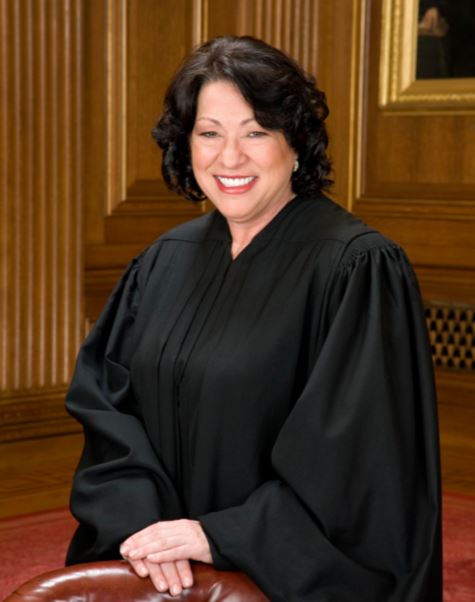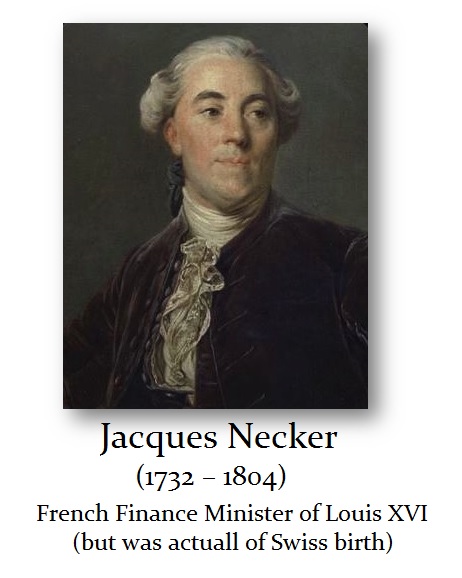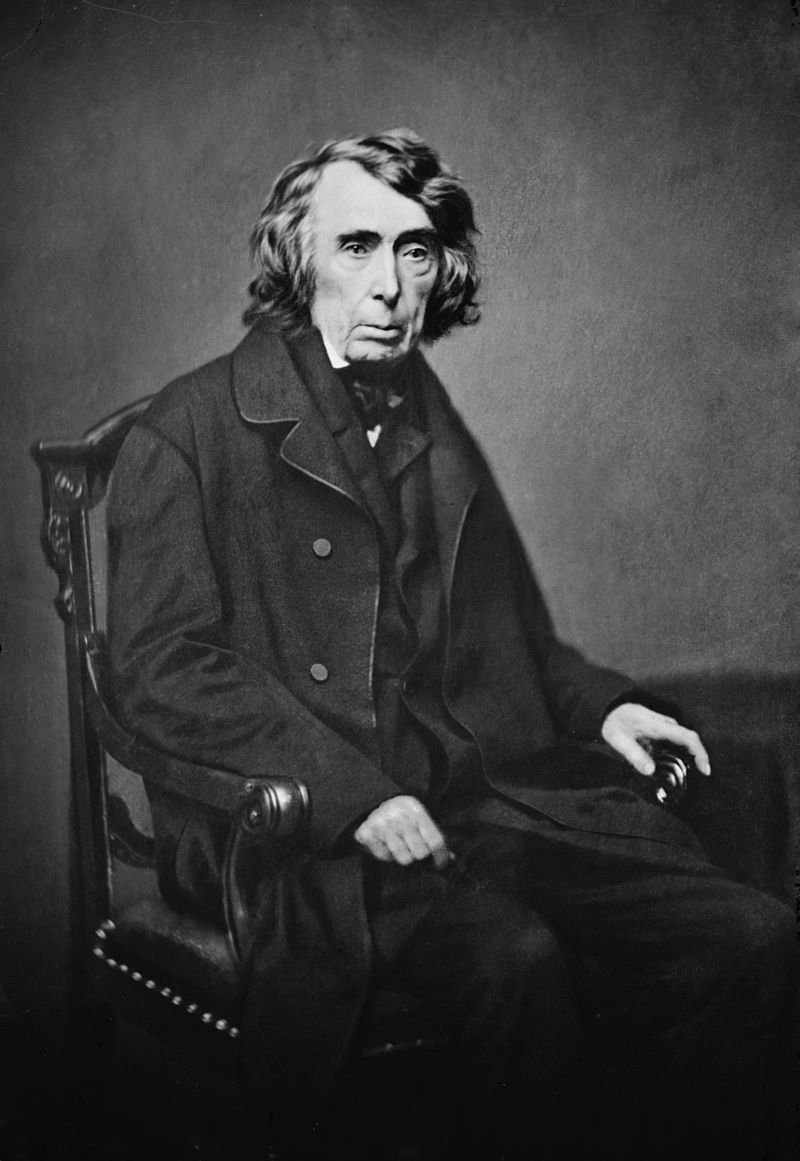
Typically, the first thing society addresses that sparks a revolution is the abuse of justice. Shakespeare’s famous quote, “The first thing we do, let’s kill all the lawyers,” is not actually about lawyers. You have to understand the context. Private individuals were not allowed to have lawyers in those days – only the king could have lawyers. It was not until the American Revolution that the Constitution gave you a right to counsel. The Supreme Court has effectively taken this away with court-appointed lawyers who work for the court and have achieved a near-perfect conviction rate of 99%. Court appointed lawyers are a joke, to put it mildly. They are generally paid $90 an hour compared to $600-$1,000 an hour for private lawyers.
Shakespeare’s famous quote comes from a rebellion:
DICK: The first thing we do, let’s kill all the lawyers.
Cade: Nay, that I mean to do.
Therefore, Shakespeare’s phrase had nothing to do with killing general lawyers; it was about the king’s PROSECUTORS who were corrupt. Jake Cade led the second Tax Revolt in England after the Black Death and the king’s “lawyers” (prosecutors) were the ones who aggressively seized homes and prosecuted people wrongly at that time. Hence, history repeats, and all the Constitutional precautions have been eliminated by the Supreme Court.
The legal case that became the seminal beginning of the American Revolution was Entick v. Carrington and Three Other King’s Messengers, reported at length in 19 Howell’s State Trials 1029. This case was the start of the American Revolution and was also based upon abuse of the king’s agents. The action, dated November 1762, was for trespassing and interfering with the plaintiff’s dwelling by breaking open his desks and boxes and searching and examining his papers.
George III (b 1738; 1760-1820) became king in 1760. In February 1761, Parliament enacted the Writs of Assistance that was challenged in court in Boston, Massachusetts. These were writs that empowered, like the NSA today at their discretion, the king’s agents to search anything they suspected. The defending lawyer James Otis (1725-1783) pronounced these writs were “the worst instrument of arbitrary power, the most destructive of English liberty, and the fundamental principles of law, that ever was found in an English law book.” Otis warned that the king placed discretion in the hands of every agent to act as he desired. Nothing has changed for government can do whatever it desires today and it is always the burden of the citizen to prove he has any rights whatsoever.
John Adams (1735–1826; 2nd President 1797–1801) was there in the audience at that hearing that day. Adams was so moved by the four- hour speech of James Otis that he declared: “Then and there was the first scene of the first act of opposition to the arbitrary claims of Great Britain. Then and there, the child independence was born.”
I am sure the king’s men also viewed their power as necessary, as the NSA does today, and Christie does while running for President because he was a former prosecutor. The abuse of the king’s agents was simply that they could enter someone’s home and search all their papers. If you wrote anything derogatory against the king, off you went to prison. This is what inspired the American Revolution and the Fourth Amendment that there had to be a reason to search; not just an arbitrary desire to see what we can find as the NSA and FBI does today. This is the very essence of LIBERTY. You cannot pretend to be the leader of the free world and then advocate that the government has a RIGHT to know everything everyone is doing or what wealth they have. This is incompatible with the term “FREEDOM.”

By the summer of 1789, France was moving quickly toward revolution. There were severe food shortages in France that year, and popular resentment against the rule of King Louis XVI was turning to fury. Jacques Necker, the finance minister of Swiss birth who was sympathetic to the people, was dismissed on July 11. The people of Paris responded and then stormed the Bastille, assuming that they and their representatives would be attacked by the royal army or by foreign regiments of mercenaries in the king’s service. The Bastille held a large cache of ammunition and gunpowder, and was known for holding political prisoners whose writings had displeased the royal government. The people stormed the Bastille seeking to gain ammunition and gunpowder for the general populace and to release political prisoners. The Bastille was a fortress prison in Paris that typically used to imprison people on the basis of lettres de cachet (literally “signet letters”), which were arbitrary royal indictments that could not be appealed. These are precisely the same types of instruments used to imprison me on “contempt of court.” These lettres de cachet did not indicate the reason for the imprisonment. This was precisely the same type of order used to hold me in contempt for seven years as they stated openly in court that there was “no description” of any accusation.
As July 1789 unfolded, Parisian revolutionaries and mutinous troops stormed and took the Bastille, which was the symbol of the tyranny of the Bourbon monarchs. Seven inmates were freed at that time. This profound action signaled the beginning of the French Revolution, which erupted because of taxes and AUSTERITY mixed with the collapse of the rule of law. The debt default and hunting the rich (which destroyed the economy) was a revolutionary reaction. When nobody will do business, they hoard cash and everything implodes, deepening the deflationary downward spiral.
Today, it is rare for a policeman to be prosecuted for killing a citizen no matter how outrageous it is. We saw this in the Tamir Rice murder where a policeman killed a 12-year-old with a toy gun in two seconds. There is no question that anyone else would be charged, but it’s the jury’s job is to decide that question. Today, the police are simply above the law and are rarely held accountable. This was precisely the same complaint Thomas Jefferson included in the Declaration of Independence about protecting agents of the government for murder, “For protecting them, by a mock Trial, from punishment for any Murders which they should commit on the Inhabitants of these States.”
Supreme Court Chief Justice Roger Brooke Taney (1777–1864) was the fifth Chief Justice in American History, presiding from 1836 until his death in 1864. However, he was previously a prosecutor and the 11th United States Attorney General. He is certainly infamous for writing the majority opinion in Dred Scott v. Sandford (1857), which ruled that African Americans were considered inferior at the time the Constitution was drafted and were not part of the original community of citizens, regardless of whether they had been free or slaves. Taney held that they could not be considered citizens of the United States.
Taney was a Jacksonian Democrat when he became Chief Justice, and was a slave owner who did free his slaves. However, he was a staunch believer in state rights and unifying the states to form the United States of America. His decision in Dred Scott created a real outrage among abolitionists and the free states of the North, and no doubt laid the foundation for the Civil War. He believed that power and liberty were extremely important and if power became too concentrated, as in the Bank of the United States, then it posed a grave threat to individual liberty. The source of his decision lies politically rather than as a racist. In this position, state rights opposing any attempt by the national government to regulate or control matters would restrict the rights of individuals in the states. It is unlikely, given Taney’s own personal freeing of his slaves, that his decision was based upon a personal belief. Instead, it was politically motivated for he was also trying to prevent a war. He knew that if he ruled in favor of Dred Scott that the South would clearly separate for he would violate state rights.
This decision illustrates the great problem we have with judges. On the other side of collapse in government, which will come, our primary goal will be determining how to rebuild from the ashes. Beginning in 1776, once the revolution began, the newly independent states dismantled the colonial court systems that were under the control of royal governors established by the king.
During the middle ages, the king and his Curia Regis held judicial power. Judicial independence emerged during the early modern period. It was not until the 15th century when the king’s role in this feature of government declined moderately. Kings could still influence courts and dismiss judges, and this was a power that the Stuart dynasty in Britain exercised quite frequently in order to overpower the Parliament of England. It was after Charles I was overthrown during the Glorious Revolution of 1688 that some began to advocate guarding against royal manipulation of the judiciary. They demanded that King William III approve the Act of Settlement 1701, which established tenure for judges unless Parliament removed them, which he conceded.
The shocking events of the 1290s were orchestrated by England’s Edward I and France’s Philip IV, which illustrated the arbitrary power of the state produced by the philosophy of the “Divine Right of Kings” that set the political tone and still plagues us to this day. The U.S. Supreme Court still upholds this medieval doctrine, illustrating that the those in power still regard themselves as ABOVE the law, which is applied to the rest of us as the great unwashed. Today, it has simply been renamed “sovereign immunity” where citizens cannot sue the government without their permission. Judges and prosecutors have ABSOLUTE IMMUNITY, and can and KNOWINGLY prosecute the wrong people for personal or political gain. This is the essence of tyranny. This also applied to the president (Nixon v. Fitzgerald, 457 U.S. 731 (1982). If the government threatens someone to commit a crime, even perjury, the Supreme Court has held that all witnesses for the government also have absolute immunity (BRISCOE ET AL. v. LAHUE ET AL., 460 U.S. 325 (1983). The Supreme Court created this doctrine of “Absolute Immunity” in 1976 in fear of what might happen if a prosecutor were sued for wrongful conduct (Imbler v. Pachtman). This doctrine was created entirely by judges and flies in the face of the American Revolution; it has no possible validity to survive that event.
The same reasoning prevailed in my own case as written by Judge John Walker (Bush’s cousin). He actually wrote:
Thus, we have little difficulty concluding that the district court’s inherent power to order coercive civil confinement is of ancient and traditional origins. Armstrong’s statutory arguments, however, present the question whether the district court still retains this power…the exercise of the inherent power of lower federal courts can be limited by statute and rule…Nevertheless, the Supreme Court explained, “we do not lightly assume that Congress has intended to depart from established principles such as the scope of a court’s inherent power.”
I got into the Supreme Court because Judge Sotomayor, now Supreme Court Justice, was on that panel and disagreed with Walker. Walker had the audacity to rule that there was no limit to the power of a federal judge to imprison anyone for life without a trial. Such people can only see the world through their own desire for absolute power. The decision in my case was no different from the lettres de cachet that sparked the French Revolution or the English Writs of Assistance that inspired the American Revolution and proved history repeats perpetually. Walker wrote:
 We believe that Judge Sotomayor advances a similarly mistaken argument in her concurring opinion by arguing that there is no practical difference between one who is “incapable of complying” and one who “simply chooses not to do so.” According to Judge Sotomayor, in either case, “there is a limit to how long [that person] can be incarcerated.” We disagree.
We believe that Judge Sotomayor advances a similarly mistaken argument in her concurring opinion by arguing that there is no practical difference between one who is “incapable of complying” and one who “simply chooses not to do so.” According to Judge Sotomayor, in either case, “there is a limit to how long [that person] can be incarcerated.” We disagree.
Judge Walker then drove from the court — I believe he was drunk — and killed a policeman directing traffic in the middle of the road. Most news stories have been erased from the internet. It seems they missed at least this on Wikipedia:
On the evening of October 17, 2006, while driving home, Judge Walker’s Ford Escape automobile struck a police officer, Daniel Picagli, who was directing traffic in a rainstorm at a road construction site for AT&T in New Haven, Connecticut.[21][22] There were no construction signs or traffic cones marking off the site.[23] Picagli died four days later on October 21, 2006. “He had been wearing a black raincoat and a reflective vest”.[24] Police Chief Francisco Ortiz said the “officers did not feel it was necessary to test Walker for drugs or alcohol”.[24] Walker stopped immediately, and New Haven police have said the cause was not related to drugs or alcohol.[25] A police investigation reported that Walker “was traveling at a slow speed through the dark and rainy construction site.”[26] The prosecutor declined to press charges, saying nothing indicated “intentional, negligent or reckless conduct” by Walker.
The police conceded they never tested him for intoxication and said Walker appeared to be OK. A judge can kill a policeman since he is higher on the political food chain.

The bankers control the New York Federal Court so there will never be a criminal prosecution, unless it is for someone who opposes them. This is not even a modern development. The Revolt of 1343 in Florence was a political backlash to the attempt of the merchant bankers to control government through the same process of owning judges. The control of the courts and the appointment of judges promised injustice and perhaps further manipulation of the law regarding bankruptcies, exactly as the bankers succeeded in getting the Clintons to exclude students from bankruptcy today. Thus, the revolt is often painted as simply a class uprising due to a failure to obtain political reform. History repeats. It is amazing how the very same plot always emerges; just the names change. To this extent, it is scary.
Back in the USA, during his trips to Scotland in 1759 and 1771, Benjamin Franklin became acquainted with most of the major figures of the Scottish Enlightenment, and he forged a personal friendship with Lord Kames. Franklin was a delegate to the Federal Convention and he brought “Historical Law-Tracts and Principles of Equity” with him when he returned to America in 1762. In a letter to Kames, Franklin wrote:
wrote:
I am now reading with great pleasure and improvement your excellent work, The Principles of Equity. It will be of the greatest advantage to the judges in our colonies, not only in those which have Courts of Chancery, but also in those which, having no such courts, are obliged to mix equity with the common law. It will be of more service to the colony judges, as few of them have been bred to the law. I have sent a book to a particular friend, one of the Judges of the Supreme Court in Pennsylvania.
Unfortunately, American courts did accept “Equity and Law,” but they vested BOTH (Chancery & Law) in a single judge who was appointed by politicians. This has allowed judges to ignore the law and visit upon the country with judicial tyranny. There is no law passed by the people awarding ABSOLUTE IMMUNITY to government agents for the murder of our citizens, nor did the people ever consent to WORLDWIDE TAXATION of American citizens even if you do not live here or use a “fair share” of any government programs. These two tyrannical decisions are entirely judicially created and are thus a UNDEMOCRATIC suppression of human rights. This is the essence of judicial tyranny, which amounts to a dictatorship bordering on a monarchy. These people are there for life and cannot be fired, no less voted out of office.
Ben Franklin had also proposed that lawyers should nominate judges, and not by government. That safeguard was simply not accepted, as those in power wanted to secure their power. Understanding the error of our ways is absolutely essential for when we fall off the cliff and try to pick ourselves up. We should learn from the mistakes of the past.
















